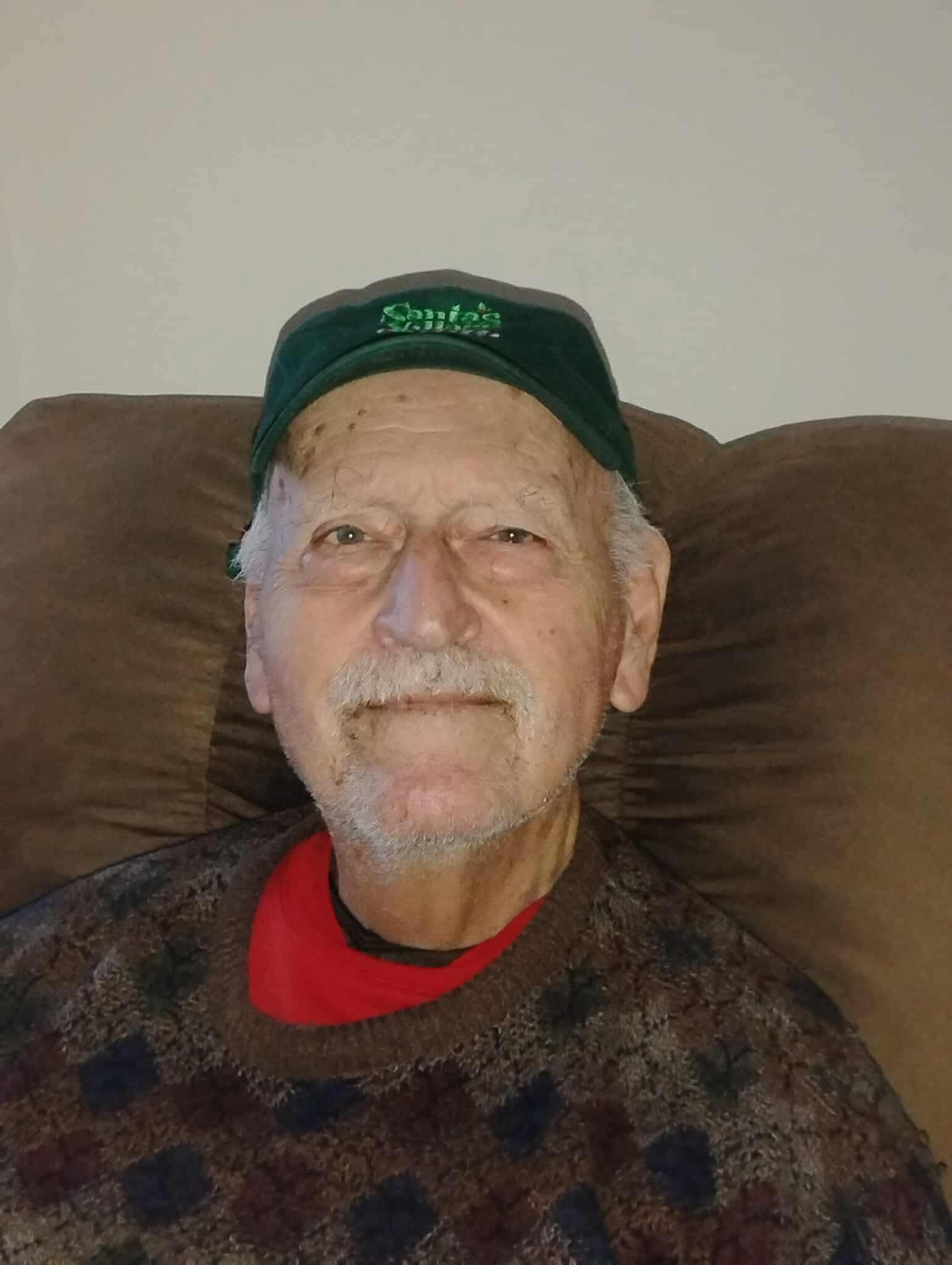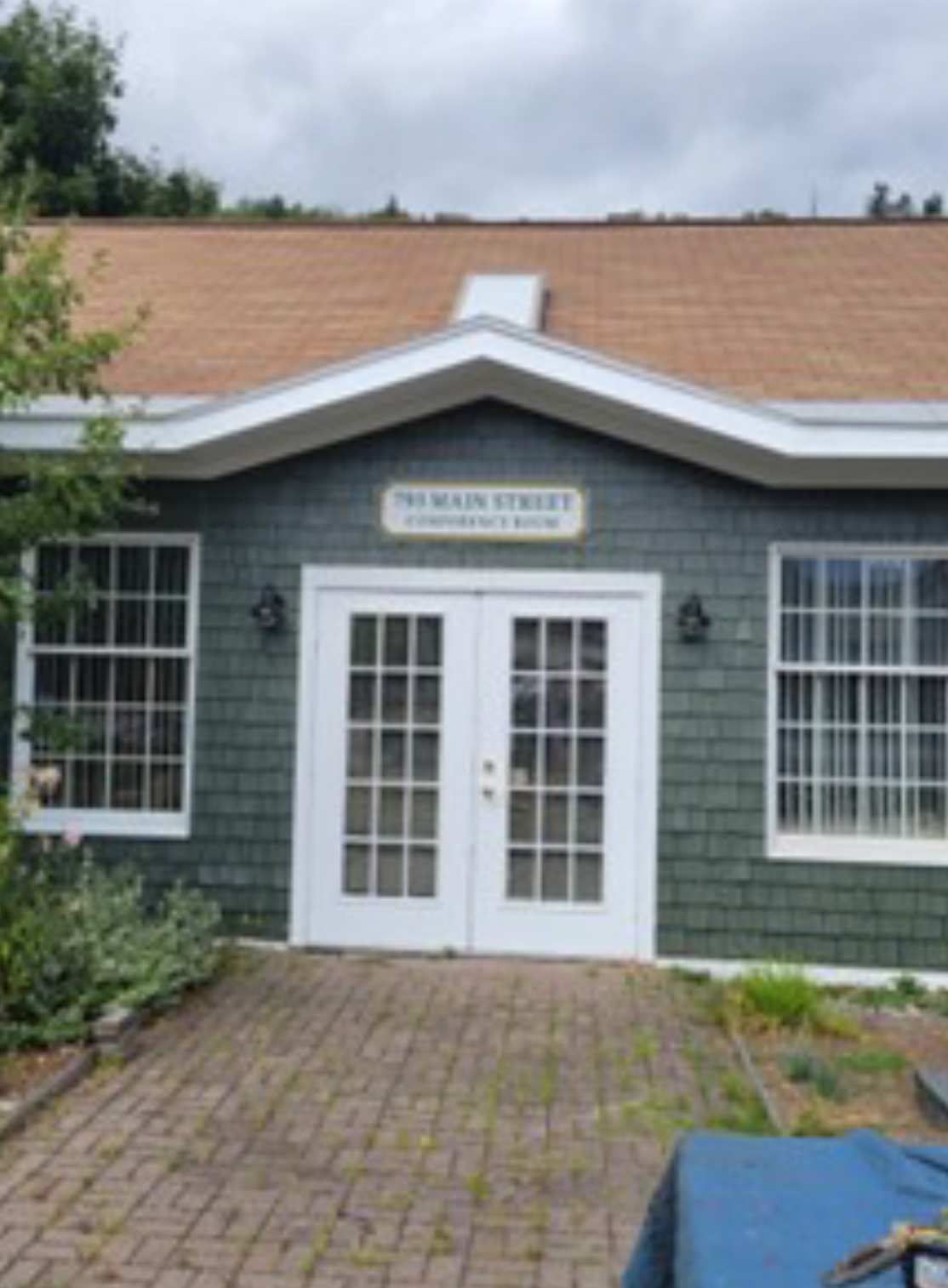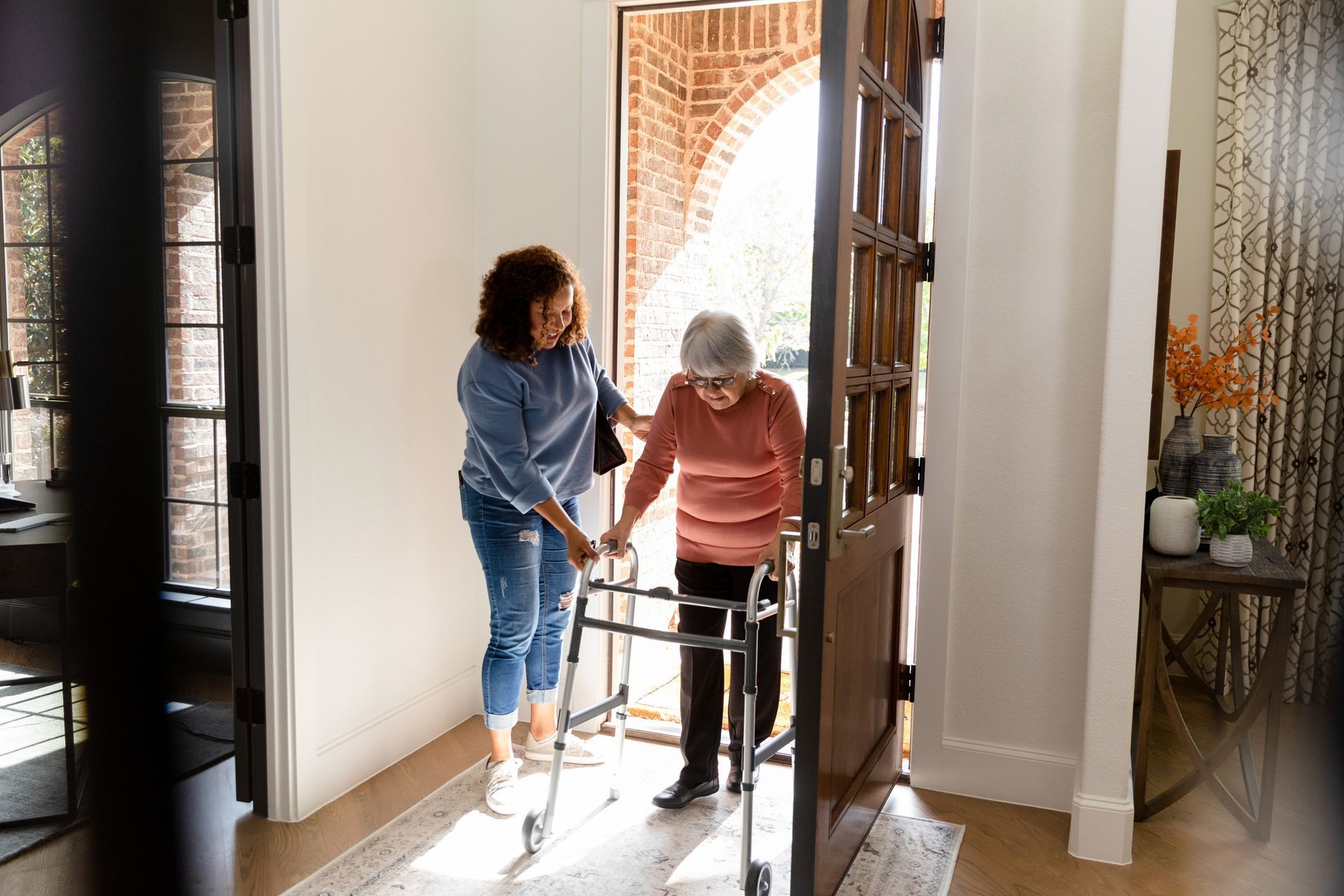Complete Guide to Caring for Elderly in Home: Services, Safety, and Support
When your aging parent expresses the desire to remain in their own home, you're faced with both an opportunity and a challenge. Over 90% of older adults prefer to age in place, yet nearly 70% will require some form of long-term care during their lifetime. Understanding the comprehensive options available for caring for elderly in home can make the difference between a safe, comfortable aging experience and one filled with unnecessary stress and risk.
This complete guide explores everything from essential health services to safety modifications, helping you navigate the complex landscape of elderly home care. Whether you're a family member seeking support for an aging loved one or planning for your own future care needs, this resource provides the practical knowledge you need to make informed decisions.
Understanding In-Home Elder Care Options
The landscape of home care services has evolved dramatically, offering families a wide spectrum of options tailored to specific needs and circumstances. Understanding these choices helps ensure your aging loved one receives appropriate care while maintaining their independence and dignity.
Home care encompasses both medical and non-medical services designed to support daily living and health management. The primary categories include skilled nursing care, personal care assistance, homemaking services, and specialized support for conditions like dementia or chronic illness. Each serves different needs and requires varying levels of professional training and oversight.
Benefits of aging in place vs. institutional care
Research consistently shows that seniors who receive care at home experience better mental health outcomes and maintain stronger family ties compared to those in institutional settings. The familiar environment reduces confusion and anxiety, particularly important for individuals with cognitive impairment. Additionally, home care often costs less than skilled nursing facility placement while providing more personalized attention.
However, in home care isn't suitable for everyone. Seniors requiring 24/7 medical supervision or those with severe behavioral issues may need the comprehensive support available in specialized facilities. The decision should balance safety, medical needs, family resources, and the individual's preferences.
When to consider professional home care assistance
Professional caregivers become necessary when family members can no longer safely provide adequate support. Warning signs include repeated falls, medication errors, difficulty with bathing or other personal care tasks, and social isolation. Medical appointments that become difficult to manage, missed doses of medication, or noticeable changes in nutrition also indicate the need for professional intervention.
The transition often begins gradually, perhaps with weekly housekeeping or twice-weekly personal care visits. As needs increase, services can expand to include daily assistance or even around-the-clock care. This flexibility allows aging adults to adapt to changing circumstances while maintaining their independence as long as possible.
Family caregiving vs. professional care services
While family members often provide the foundation of care, professional caregivers bring specialized training and objectivity to challenging situations. Family caregivers frequently struggle with the physical and emotional demands of providing care, particularly when managing medical needs or behavioral changes associated with dementia.
Professional caregivers can also provide respite for family members, preventing burnout and allowing them to maintain their own health and quality time with their aging loved one. Many successful care plans combine family involvement with professional support, creating a comprehensive network that addresses both practical needs and emotional well-being.
Cost considerations and insurance coverage options
Understanding the financial aspects of home care helps families plan effectively and access available resources. Medicare benefits cover certain home health services when medically necessary and prescribed by a doctor, including skilled nursing, physical therapy, and some medical supplies. However, Medicare doesn't cover long-term personal care or custodial services.
Long term care insurance policies vary widely in their coverage of home care services. Some government programs, including Medicaid and Veterans Affairs benefits, may assist qualifying individuals. Many families also explore private pay options, which offer the most flexibility in service selection and provider choice. Resources like the eldercare locator can help families find local programs and financial assistance options.
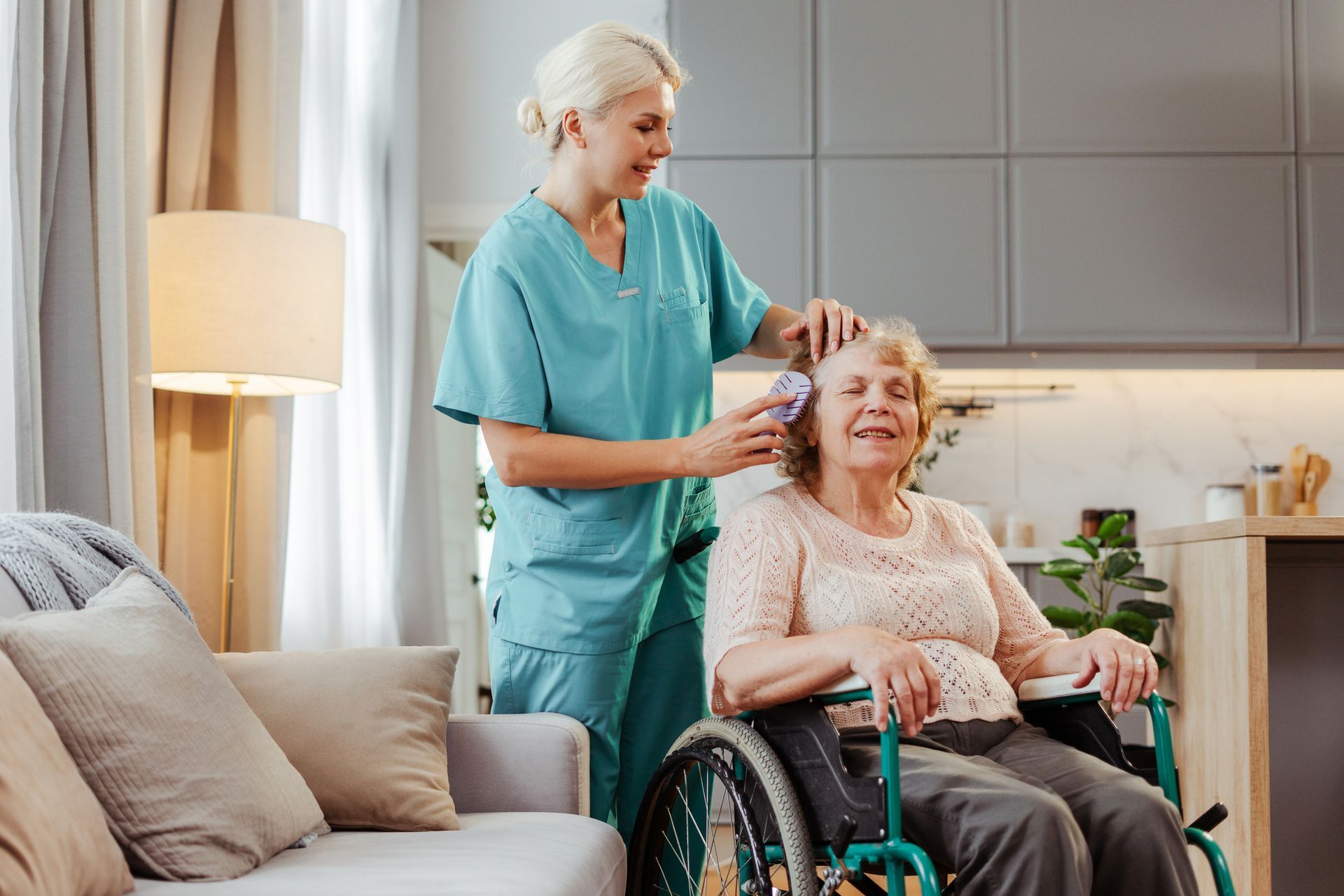
Essential Home Health Care Services
Home health services focus on medical care provided by licensed professionals in the comfort of the patient's home. These services require physician orders and typically involve skilled nursing, therapy services, or medical social work. Understanding what qualifies as home health care versus personal care helps families access appropriate services and maximize insurance benefits.
Skilled nursing care represents the cornerstone of home health services, providing medical oversight for complex conditions and recovery situations. Registered nurses assess patients, coordinate with physicians, and provide specialized treatments that require professional expertise. This level of care proves essential for managing chronic conditions, wound care, and medication administration.
The scope of skilled nursing services includes monitoring vital signs, managing complex medication regimens, providing wound care, and educating patients and family members about health conditions. Nurses also serve as liaisons between patients, doctors, and other healthcare providers, ensuring coordinated care that addresses all aspects of the patient's health.
Physical therapy services help seniors maintain mobility, strength, and independence following illness, injury, or surgery. Home-based therapy offers the advantage of working in the patient's actual living environment, addressing real-world challenges like navigating stairs or safely entering and exiting the bathroom. Therapists also evaluate the home for safety modifications and recommend assistive devices.
Post-hospital care and recovery support
The transition from hospital to home represents a critical period when complications can arise and readmissions occur. Home health services provide intensive monitoring during this vulnerable time, helping patients follow medical instructions, manage new medications, and recognize warning signs of complications.
Recovery support often includes multiple disciplines working together. A patient recovering from hip surgery might receive skilled nursing for wound monitoring, physical therapy for mobility training, and occupational therapy for adaptive techniques. This coordinated approach addresses the complex needs that arise during recovery while allowing patients to heal in familiar surroundings.
Chronic condition management
Managing conditions like diabetes, heart disease, and chronic obstructive pulmonary disease requires ongoing medical oversight and patient education. Home health nurses provide regular monitoring, medication adjustments, and instruction on self-care techniques. This proactive approach often prevents complications and reduces hospitalizations.
Technology increasingly supports chronic condition management at home. Remote monitoring devices can track vital signs, medication adherence, and other health indicators, alerting healthcare providers to concerning changes. These tools enable early intervention and provide peace of mind for both patients and family members.
Choosing Quality Home Health Providers
Selecting a qualified home health agency requires careful evaluation of credentials, services, and quality indicators. Medicare-certified agencies must meet federal standards and undergo regular inspections, providing a baseline level of quality assurance. However, certification alone doesn't guarantee excellent care, making additional research essential.
When evaluating providers, ask about staff qualifications, training programs, and supervision procedures. Inquire about their experience with your specific health conditions and their approach to care planning. Quality agencies will welcome these questions and provide detailed information about their services and staff.
References from healthcare providers, other families, and community organizations offer valuable insights into an agency's reputation and service quality. Online resources, including Medicare's Care Compare website, provide ratings and inspection results for certified agencies. This information helps families make informed choices about their healthcare providers.
Red flags include agencies that guarantee quick insurance approval, request payment before services begin, or seem reluctant to provide references. High staff turnover, poor communication, or reluctance to involve family members in care planning also warrant caution. Trust your instincts when evaluating potential providers, as the relationship between caregivers and patients forms the foundation of successful home care.
Daily Living Assistance and Personal Care
Personal care services address the fundamental activities that seniors may find increasingly challenging as they age. These services focus on maintaining dignity, comfort, and safety while providing support with intimate daily tasks. Unlike medical home health services, personal care doesn't require physician orders but represents an essential component of comprehensive elderly care.
Bathing assistance requires particular sensitivity and skill, as many seniors feel vulnerable during this intimate activity. Professional caregivers are trained to provide support while preserving privacy and dignity. They understand adaptive techniques that ensure safety, such as using shower chairs, hand-held sprayers, and non-slip surfaces. This assistance prevents falls and ensures proper hygiene, both critical for health and self-esteem.
Dressing and grooming support extends beyond simply putting on clothes. Caregivers help select appropriate clothing for weather and activities, assist with adaptive techniques for limited mobility, and provide support with personal grooming that maintains appearance and confidence. These seemingly simple tasks significantly impact a senior's sense of self-worth and social engagement.
Mobility assistance encompasses help with walking, transferring between surfaces, and using assistive devices safely. Trained caregivers understand proper body mechanics to prevent injury to both themselves and the care recipient. They also recognize when mobility limitations require equipment modifications or additional safety measures.
Household tasks and daily maintenance
Household assistance maintains the safe living environment essential for aging in place. Professional homemakers or home health aides can provide cleaning services, laundry assistance, and general home maintenance that becomes difficult as physical abilities decline. These services prevent health hazards and maintain the comfortable living environment that supports independence.
Grocery shopping and meal preparation represent critical services for seniors who can no longer drive or have difficulty cooking safely. Caregivers can accommodate dietary restrictions, ensure nutritious meals, and provide supervision for seniors who can still participate in cooking but need safety oversight. This support maintains proper nutrition while preserving involvement in meaningful activities.
Financial management of household tasks includes assistance with organizing mail, paying bills, and maintaining household schedules. While caregivers shouldn't handle financial accounts directly, they can provide organizational support that helps seniors maintain control of their affairs with appropriate oversight from trusted family members.
Companionship and social interaction services
Social isolation represents a significant health risk for seniors, contributing to depression, cognitive decline, and increased hospitalization rates. Companionship services address this need through regular social interaction, emotional support, and assistance with maintaining social connections. Research shows that regular companionship visits can reduce hospitalizations by up to 45% among isolated seniors.
Companionship caregivers engage seniors in meaningful activities, conversation, and social outings. They may facilitate phone calls with family and friends, accompany seniors to social activities, or simply provide the comfort of human presence. These relationships often develop into meaningful connections that significantly enhance quality of life.
The role of companion caregivers extends to encouraging participation in hobbies, interests, and spiritual activities that provide purpose and joy. Whether attending religious services, pursuing artistic interests, or maintaining garden spaces, these activities contribute to overall well being and life satisfaction.
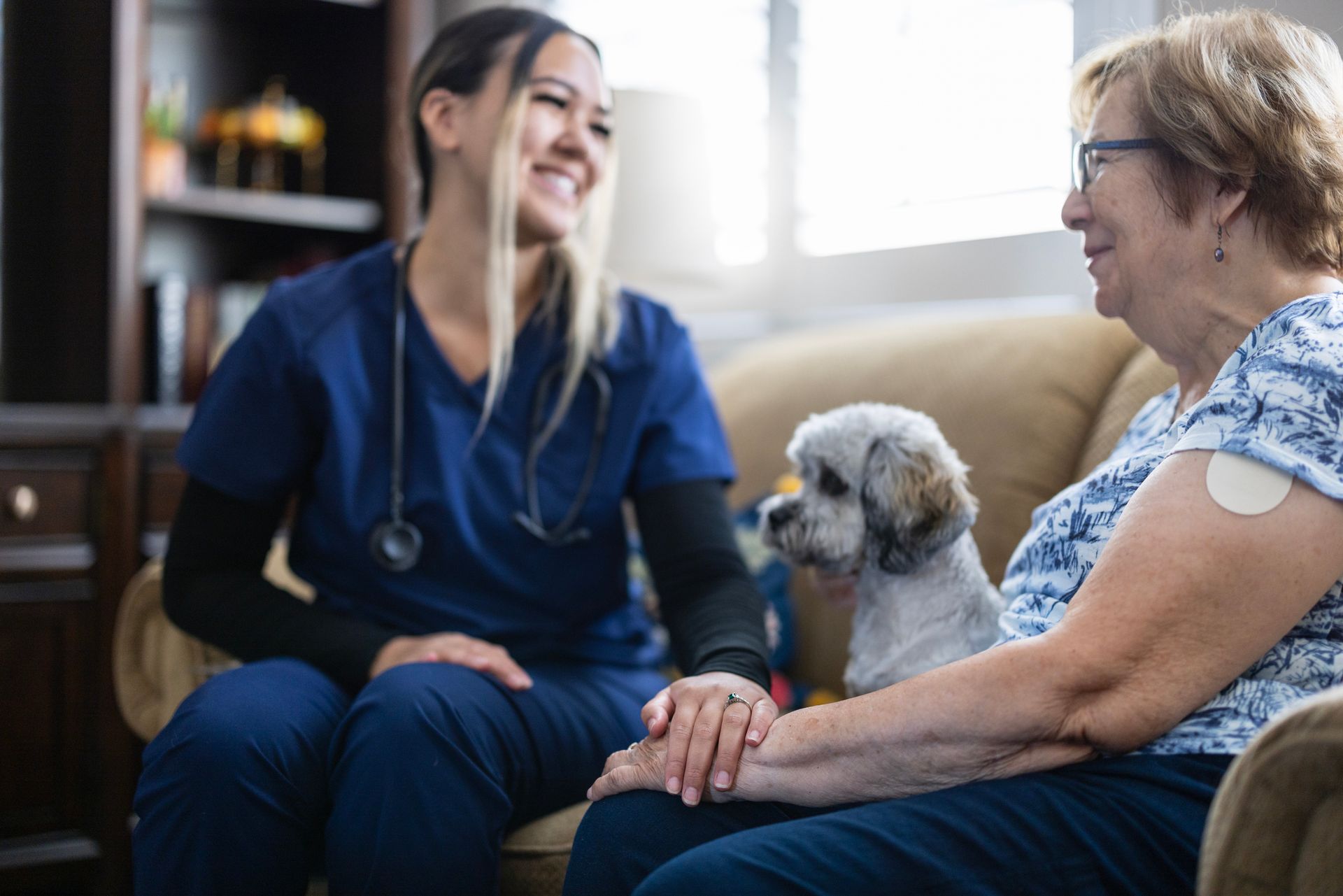
Creating a Safe Home Environment
Home safety modifications represent one of the most effective interventions for preventing injuries and supporting independent living. Falls account for the leading cause of injury-related death among seniors, making safety modifications a critical component of caring for elderly in home. A comprehensive safety assessment identifies risks and implements practical solutions that significantly reduce hazards.
The bathroom presents the highest risk area for falls due to wet surfaces, hard fixtures, and the need for frequent position changes. Installing grab bars near toilets and in shower areas provides essential support for transfers and balance. These modifications should be professionally installed to ensure they can support body weight safely. Non-slip surfaces, adequate lighting, and raised toilet seats further enhance bathroom safety.
Stairways require particular attention, with proper handrails, adequate lighting, and non-slip treads essential for safe navigation. Electrical cords should be secured and kept away from walkways to prevent tripping hazards. Adequate lighting throughout the home, including motion-activated lights for nighttime navigation, significantly reduces fall risk.
Emergency medical alert systems and monitoring devices
Medical alert systems provide critical safety nets for seniors living independently. These devices enable immediate access to emergency services when falls or medical emergencies occur. Modern systems include GPS tracking for seniors who leave the home, fall detection technology, and two-way communication capabilities that connect users directly with emergency responders.
Smart home technology increasingly supports aging in place through automated medication reminders, activity monitoring, and emergency detection systems. These technologies can alert family members or caregivers to changes in daily routines that might indicate health problems or emergencies.
The selection of monitoring systems should balance safety needs with privacy concerns. Some seniors resist technologies they perceive as intrusive, while others find comfort in knowing help is readily available. Family discussions about preferences and gradual introduction of technologies often help seniors accept these valuable safety tools.
Assistive devices and mobility aids
Assistive devices range from simple tools like reachers and button hooks to complex mobility equipment like wheelchairs and stair lifts. Physical and occupational therapists can assess individual needs and recommend appropriate devices that enhance independence while ensuring safety. Proper training in device use is essential for maximizing benefits and preventing injuries.
Mobility aids must be properly fitted and maintained to provide safe support. Walkers, canes, and wheelchairs require regular inspection and adjustment as needs change. Environmental modifications may be necessary to accommodate larger mobility devices, including widening doorways or installing ramps.
The psychological aspects of accepting assistive devices shouldn't be overlooked. Many seniors resist using mobility aids due to concerns about appearance or loss of independence. Gradual introduction, emphasizing the increased independence these tools provide, and selecting attractive, modern designs can help overcome resistance.
Transportation and Community Connections
Transportation represents a critical component of aging in place, enabling seniors to maintain independence, access healthcare, and remain connected to their communities. Loss of driving ability often marks a significant transition in aging, requiring alternative transportation solutions to prevent isolation and ensure access to essential services.
Medical appointments become increasingly important as health needs change, yet transportation barriers often prevent seniors from accessing necessary care. Professional medical transportation services accommodate wheelchairs and mobility devices while providing trained assistance for seniors with physical limitations. These services ensure safe, reliable access to healthcare providers, diagnostic facilities, and treatment centers.
Many communities offer volunteer driver programs specifically designed for seniors, providing transportation for medical appointments, grocery shopping, and social activities. These programs often cost less than commercial services while providing the additional benefit of social interaction with caring volunteers. Organizations like faith communities, senior centers, and nonprofit agencies frequently coordinate these valuable programs.
Accommodating mobility challenges
Transportation services must address the specific needs of seniors using wheelchairs, walkers, or other mobility devices. Vehicle modifications, including wheelchair lifts and specialized seating, ensure safe transport for individuals with mobility limitations. Drivers trained in assisting seniors provide additional support for entering and exiting vehicles safely.
The scheduling of transportation requires careful coordination with medical appointments and other activities. Reliable transportation providers understand the importance of punctuality for medical visits and accommodate the additional time seniors may need for mobility assistance.
Emergency transportation planning ensures seniors can access urgent care when family members aren't available. This might include arrangements with local ambulance services, ride-sharing services trained in senior assistance, or medical transportation companies that provide on-demand services.
Maintaining social connections and preventing isolation
Transportation for social activities proves as important as medical transportation for maintaining overall health and well being. Access to community centers, religious services, social clubs, and family gatherings significantly impacts mental health and life satisfaction. Transportation services that accommodate social activities help seniors maintain the connections essential for emotional well-being.
Technology increasingly supports transportation access through ride-sharing applications designed for seniors, online scheduling systems for medical transportation, and GPS tracking that provides family members with peace of mind about their loved one's whereabouts.
Community programs often provide group transportation for social activities, creating opportunities for interaction while addressing transportation needs efficiently. These programs might include shuttles to shopping centers, group outings to cultural events, or transportation to senior center activities.
Financial Management and Legal Considerations
Managing finances becomes increasingly complex as cognitive abilities change and physical limitations affect the ability to handle routine tasks. Assistance with financial management helps prevent fraud, ensures bills are paid timely, and maintains the financial organization necessary for accessing benefits and services.
Bill paying assistance ranges from simple organization support to comprehensive financial management, depending on individual needs and family preferences. Trusted family members often handle major financial decisions while professional services assist with routine tasks like organizing mail, scheduling payments, and maintaining financial records.
Online banking and automated payments
Technology can simplify financial management through online banking and automatic payment systems. However, many seniors require assistance setting up and monitoring these systems. Financial institutions often provide specialized senior services, including larger print statements, simplified online interfaces, and dedicated customer service representatives familiar with senior needs.
Automatic payment systems reduce the risk of missed payments while maintaining financial independence. However, these systems require ongoing monitoring to ensure accuracy and prevent unauthorized charges. Family members or trusted advisors should have access to account information to provide oversight without removing control from the senior.
Power of attorney and legal planning
Legal planning documents become essential as aging progresses, ensuring that trusted individuals can make decisions when necessary. Power of attorney documents, both financial and healthcare, should be established while cognitive abilities remain intact. These documents provide legal authority for trusted family members or friends to act on behalf of the senior when needed.
Advanced directives and healthcare proxies ensure that medical preferences are known and respected when seniors cannot communicate their wishes. These documents should be regularly reviewed and updated as health conditions or preferences change. Healthcare providers and family members should have copies of these important documents.
Protecting against financial fraud and scams
Seniors face increasing risks of financial fraud and scams specifically targeting their age group. Education about common scams, including phone fraud, internet schemes, and door-to-door sales tactics, helps seniors recognize and avoid these threats. Family members should be alert to signs of financial exploitation, including unusual spending patterns or new financial relationships.
Professional financial management services can provide oversight that protects against fraud while maintaining independence. These services often include regular account monitoring, fraud alerts, and professional advice about financial decisions. The cost of these services often proves minimal compared to the protection they provide.

Support for Family Caregivers
Family caregivers provide the majority of care for aging adults, often while managing their own careers, health concerns, and family responsibilities. The physical and emotional demands of caregiving can lead to burnout, health problems, and family stress without adequate support systems. Recognition of caregiver needs and access to support services proves essential for sustainable care arrangements.
Caregiver burnout manifests through physical exhaustion, emotional stress, social isolation, and health problems. Warning signs include irritability, sleep disturbances, depression, and neglect of personal health. Early recognition and intervention prevent more serious consequences and help maintain effective caregiving relationships.
Respite care provides temporary relief for primary caregivers, allowing them to rest, attend to personal needs, or maintain social connections. These services range from a few hours of companion care to overnight or extended stays by professional caregivers. Adult day care programs offer structured daytime activities for seniors while providing respite for working caregivers.
Caregiver support groups and counseling services
Support groups connect caregivers with others facing similar challenges, providing emotional support, practical advice, and validation of their experiences. These groups may focus on specific conditions like dementia or address general caregiving challenges. Many healthcare systems, community organizations, and faith communities sponsor support groups for family caregivers.
Professional counseling services help caregivers process the emotional aspects of watching a loved one's decline while managing the practical demands of providing care. Mental health professionals with experience in aging and family dynamics can provide strategies for coping with stress, communicating with other family members, and making difficult decisions.
Balancing caregiving with work and family responsibilities
Many caregivers are part of the "sandwich generation," caring for aging parents while raising children and maintaining careers. This complex balancing act requires careful planning, clear communication with employers, and utilization of available support services. Some employers offer eldercare assistance programs or flexible work arrangements that support caregiving employees.
Professional support services can help caregivers maintain their employment and family responsibilities. Geriatric care managers coordinate services, communicate with healthcare providers, and provide professional oversight that allows family members to remain involved without managing every aspect of care.
Professional Support Services
Geriatric care managers provide comprehensive assessment, planning, and coordination services for families managing complex care situations. These professionals, often social workers or nurses with specialized training in aging, understand the healthcare system, community resources, and legal considerations involved in elderly care.
The services provided by geriatric care managers include initial assessments of needs and safety, development of comprehensive care plans, coordination of services from multiple providers, and ongoing monitoring of care quality. They also provide advocacy during healthcare encounters and help families navigate insurance and benefit systems.
Mental health professionals specializing in aging provide counseling services for both seniors and their families. These services address the emotional aspects of aging, family relationship changes, and decision-making about care. Many insurance plans, including Medicare, cover mental health services when provided by qualified professionals.
Nutrition and Meal Services for Seniors
Proper nutrition becomes increasingly challenging as aging affects appetite, cooking ability, and access to healthy foods. Nutritional deficiencies contribute to falls, infections, and cognitive decline, making meal support a critical component of aging in place. Understanding available meal services and nutritional needs helps ensure seniors maintain the energy and health necessary for independence.
Meal delivery programs range from commercial services offering senior-specific menus to community-based programs like Meals on Wheels that provide both nutrition and social contact. These services accommodate dietary restrictions common among seniors, including low-sodium diets for heart conditions, diabetic-friendly meals, and texture modifications for swallowing difficulties.
Community dining programs offered through senior centers provide nutritious meals in social settings that combat isolation while ensuring proper nutrition. These programs often include nutrition education, social activities, and health screenings that address multiple aspects of senior health and well-being.
Dietary accommodation for health conditions
Many seniors manage multiple health conditions requiring specific dietary restrictions or modifications. Professional nutritionists can develop meal plans that accommodate these needs while ensuring adequate nutrition and meal enjoyment. Common considerations include diabetic meal planning, heart-healthy diets, and modifications for swallowing difficulties.
Grocery delivery services and online ordering systems help seniors access healthy foods when transportation or mobility limitations affect their ability to shop. Many services offer senior discounts and can accommodate special requests for specific brands or dietary needs. Family members can often set up accounts and manage orders while allowing seniors to maintain input in food selection.
The social aspects of eating shouldn't be overlooked when planning meal services. Sharing meals with family, friends, or other seniors contributes to emotional well-being and encourages better eating habits. Many meal programs include social components that address both nutritional and social needs.
Androscoggin Valley Home Care Services
Located in the heart of Coös County, New Hampshire, Androscoggin Valley Home Care Services has been a trusted provider of comprehensive home care since 1975. As a licensed nonprofit agency, they understand the unique challenges facing families in rural communities and provide personalized solutions that enable seniors to age safely and comfortably in their own homes.
The agency offers a full spectrum of services designed to meet the evolving needs of aging adults and their families. Their skilled nursing services provide professional medical care for chronic conditions, post-hospital recovery, and complex health management needs. Licensed registered nurses work closely with physicians to ensure coordinated care that addresses all aspects of a patient's health.
Personal care services through qualified home health aides assist with daily activities including bathing, dressing, medication reminders, and mobility support. These services maintain dignity and independence while ensuring safety and comfort. The agency's homemaking services address household tasks that become challenging with age, including cleaning, laundry, meal preparation, and light maintenance.
What sets Androscoggin Valley Home Care Services apart is their commitment to flexible, individualized care plans that adapt to changing needs. Their trained staff includes registered nurses, licensed practical nurses, certified nursing assistants, and experienced homemakers who work together to provide comprehensive support tailored to each client's specific situation.
The agency recognizes that family members play a crucial role in successful aging in place. They offer respite care services that provide temporary relief for family caregivers, allowing them to maintain their own health and well-being while ensuring their loved one receives professional care. This support proves essential for families managing the long-term demands of caregiving.
Through their Dorothy's Gift charitable support program, Androscoggin Valley Home Care Services demonstrates their commitment to serving community members regardless of their financial circumstances. This program ensures that financial limitations don't prevent access to essential home care services, reflecting the agency's nonprofit mission and community focus.
The agency's deep roots in the community provide them with extensive knowledge of local resources, healthcare providers, and support services. This network enables them to coordinate comprehensive care that addresses not just immediate health needs but also social, emotional, and practical concerns that affect quality of life.
For families considering home care options, Androscoggin Valley Home Care Services offers comprehensive consultations to assess needs, explain available services, and develop appropriate care plans. Their experienced staff provides guidance on insurance coverage, Medicare benefits, and other financial resources that can support home care services.
Families interested in learning more about how Androscoggin Valley Home Care Services can support their aging loved one can contact them directly for a consultation. Their professional team is ready to discuss specific needs, answer questions about services, and provide the resources necessary to make informed decisions about caring for elderly in home.
The agency serves clients throughout Coös County and surrounding areas, bringing professional, compassionate care directly to clients' homes. Their commitment to excellence, community service, and individualized care makes them a valuable partner for families navigating the complexities of aging in place.



